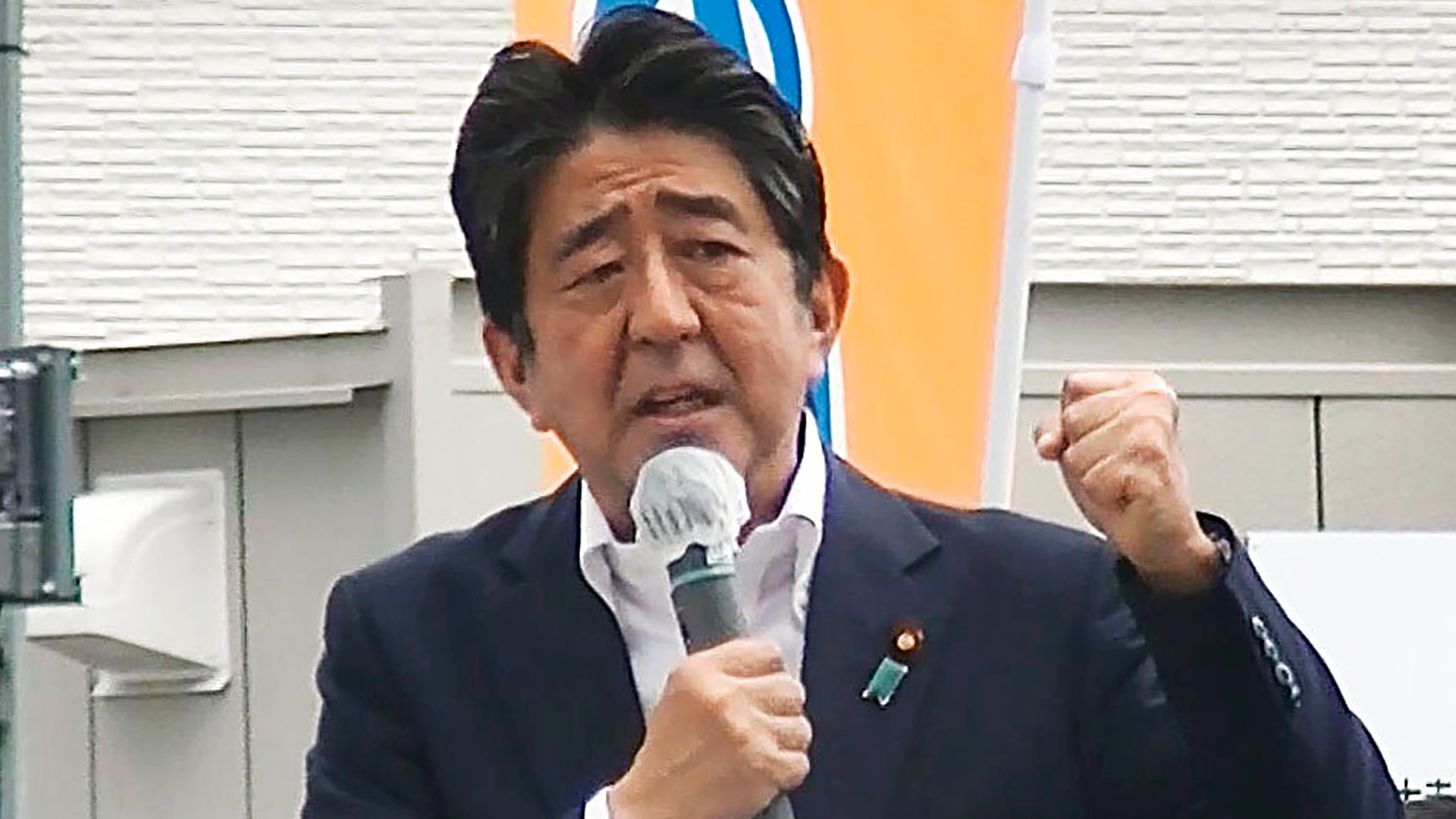TOKYO, Japan — Former Prime Minister Shinzo Abe was assassinated Friday on a street in western Japan by a gunman who opened fire on him from behind as he delivered a campaign speech — an attack that stunned the nation that has some of the strictest gun control laws anywhere.
The 67-year-old Abe, who was Japan’s longest-serving leader when he resigned in 2020, collapsed bleeding and was airlifted to a nearby hospital in Nara, although he was not breathing and his heart had stopped. He was later pronounced dead after receiving massive blood transfusions, officials said.
Nara Medical University emergency department chief Hidetada Fukushima said Abe suffered major damage to his heart, along with two neck wounds that damaged an artery. He never regained his vital signs, Fukushima said.
Prefectural police in Nara arrested the suspected gunman at the scene of the attack and identified him as Tetsuya Yamagami, 41, a former member of Japan's navy. Broadcaster NHK reported that he said he wanted to kill Abe because he had complaints about him unrelated to politics.
Dramatic video from NHK showed Abe standing and giving a speech outside a train station in Nara ahead of Sunday's parliamentary election. As he raised his fist to make a point, two gunshots rang out, and he collapsed holding his chest, his shirt smeared with blood as security guards run toward him.
Guards leapt onto the gunman, who was face down on the pavement. A double-barreled device that appeared to be a handmade gun was seen on the ground.
Prime Minister Fumio Kishida and his Cabinet ministers hastily returned to Tokyo from campaign events around the country after the shooting, which he called “dastardly and barbaric." He pledged that the election, which chooses members for Japan's less-powerful upper house of parliament, would go on as planned.
“I use the harshest words to condemn (the act),” Kishida said, struggling to control his emotions. He said the government planned to review the security situation, but added that Abe had the highest protection.
Even though he was out of office, Abe was still highly influential in the governing Liberal Democratic Party and headed its largest faction, Seiwakai.
Opposition leaders condemned the attack as a challenge to Japan’s democracy. In Tokyo, people stopped on the street to grab extra editions of newspapers or watch TV coverage of the shooting.
When he resigned as prime minister, Abe said he had a recurrence of the ulcerative colitis he'd had since he was a teenager.
He told reporters at the time that it was “gut wrenching” to leave many of his goals unfinished. He spoke of his failure to resolve the issue of Japanese abducted years ago by North Korea, a territorial dispute with Russia and a revision of Japan’s war-renouncing constitution.
That last goal made him a divisive figure. His ultra-nationalism riled the Koreas and China, and his push to create what he saw as a more normal defense posture angered many Japanese. Abe failed to achieve his cherished goal of formally rewriting the U.S.-drafted pacifist constitution because of poor public support.
Loyalists said that his legacy was a stronger U.S.-Japan relationship that was meant to bolster Japan’s defense capability. But Abe made enemies by forcing his defense goals and other contentious issues through parliament, despite strong public opposition.
Abe was groomed to follow in the footsteps of his grandfather, former Prime Minister Nobusuke Kishi. His political rhetoric often focused on making Japan a “normal” and “beautiful” nation with a stronger military and bigger role in international affairs.
Many foreign officials expressed shock over the shooting.
Abe was proud of his work to strengthen Japan's security alliance with the U.S. and shepherding the first visit by a serving U.S. president to the atom-bombed city of Hiroshima. He also helped Tokyo gain the right to host the 2020 Olympics by pledging that a disaster at the Fukushima nuclear plant was “under control” when it was not.
Abe became Japan’s youngest prime minister in 2006, at age 52, but his overly nationalistic first stint abruptly ended a year later, also because of his health.
The end of Abe’s scandal-laden first stint as prime minister was the beginning of six years of annual leadership change, remembered as an era of “revolving door” politics that lacked stability and long-term policies.
When he returned to office in 2012, Abe vowed to revitalize the nation and get its economy out of its deflationary doldrums with his “Abenomics” formula, which combines fiscal stimulus, monetary easing and structural reforms.
He won six national elections and built a rock-solid grip on power, bolstering Japan’s defense role and capability and its security alliance with the U.S. He also stepped up patriotic education at schools and raised Japan’s international profile.

